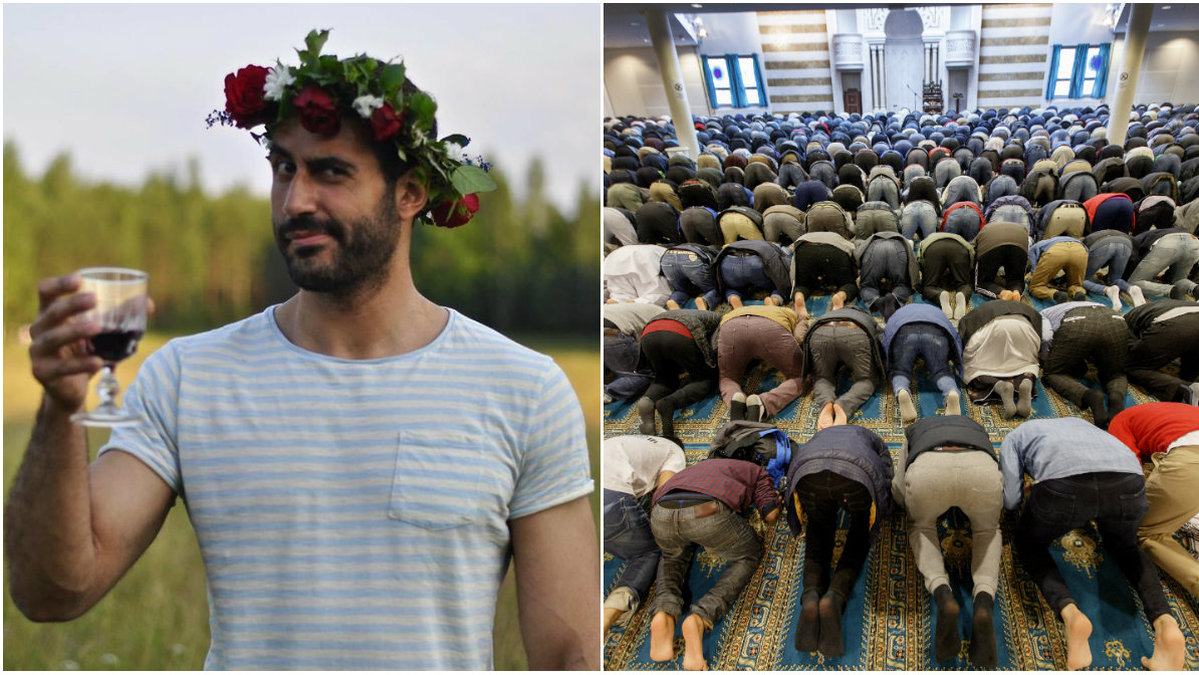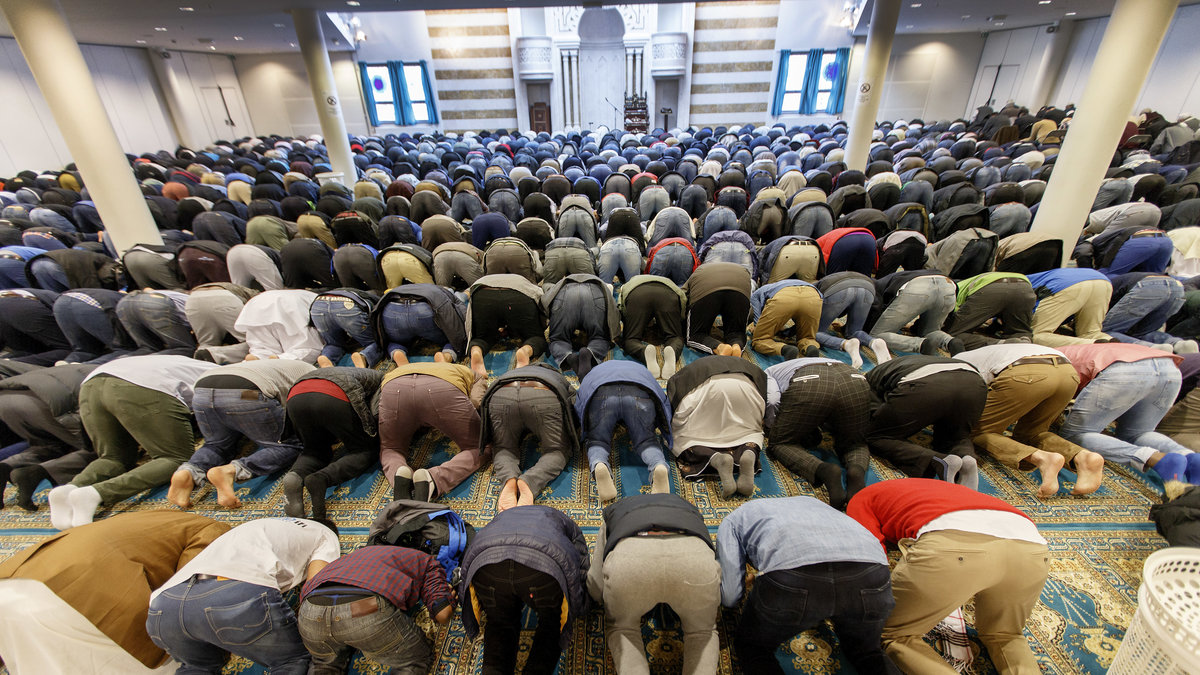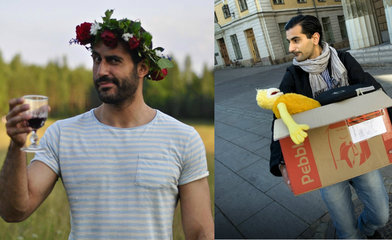Ex-Muslim: An open letter to my Muslim friends
Omar Makram: "There is huge difference between being against ideas and being against people".
I understand, I really understand your confusion and frustration in why I speak about Islam negatively. I do. You ask yourselves why I no longer believe in Islam after I had been a Muslim, and if I do not believe in it, why do I have to criticize it.
Some of you observe that it is not just that I do not believe in Islam, but also that I dislike it, and also wonder why it is so. Also some wonder, even if I do not like it, why I do I have to express my dislike for it and why I cannot just remain silent.
But I will try to explain, so please keep an open mind, and understand my words with your mind and reason, not with your heart and emotions. Firstly, I assure you the main purpose of my criticism of Islam, is not to try to make you angry or provoke you. I actually believe the less emotionally charged the dialogue and more based on reason, the better.
You have to understand there is a difference between respecting people’s right to believe in what they want, and respecting those beliefs in themselves. So I do respect your right to believe in Islam, but that does not mean I have to respect Islam as well.
To avoid confusion, I want to be clear about what I mean by ‘Islam’. Islam for me is simply the scripture, the Quran, the Sahih Hadith and then secondly the historical actions of Muhammad. ‘Islam’ for me is not ‘Muslims’.
The former is an ideology, the latter is people, and there is huge difference between being against ideas and being against people. It is not that I have just simply lost my faith and now I am neutral about Islam. I am not neutral. I do not like it, and that is ok. Same as you like it, and that is also ok.
You have the right to express your admiration of it, and I have the right to express my dislike of it. Why do I dislike Islam? Well, I dislike all religions, because they rely on supernatural fiction and not reason, and because they foster superstition and ignorance.
Also because religion, more often than not, lead to religious supremacy/religious nationalism and destructive tribal behavior and the oppression of the individual. I also especially dislike Abrahamic religions because of their more violent and oppressive nature. I just happen to know more about Islam and have more of a personal connection to it because I was raised as a Muslim in a Muslim family and in a Muslim society.
So it is only logical that my knowledge and personal experience would make me more interested in the issue of Islam than Hinduism for example. I dislike Islam, simply because I believe Islam, as an ideology is in direct contradiction with my values, which are liberal secular values, the values of human rights and equality.
As a feminist I cannot accept the sexism and misogyny contained in the scripture. I cannot accept that the husband is permitted to beat his disobedient wife, or that it did not prohibit making sex slaves of captives of war, or that Muhammad said that women are the majority of the occupants of hell and that they have deficient intelligence.
Or that the woman is worth half a man. As someone who is pro gay rights I cannot accept the homophobia that is contained in the scripture. I dislike it for claiming homosexual relations are abominable acts and should be punishable. I dislike the hate that is embedded in the scripture against non believers.
The violence of spreading the message of Islam, the ideology of conquest and submission of people. The notion of Islamic supremacy that leads to dangerous tribal religious nationalism. I dislike it because I see Muhammad and his companions as warlords and not as role models. I dislike the threats of an angry God with eternal hell fire for those who do not believe in him, simply for not believing.
Fire for the Christians who believe that Jesus is son of God. Fire for the Jews who deny Muhammad is the prophet. I dislike the anti-semitism which the text is full of, to the extent that Muhammad said Muslims will kill the Jews before the last hour comes. It is also appalling for me personally, that apostates like myself who leave Islam, their punishment in Sharia is death.
I dislike it because of repressive sexual puritanism. I dislike it because for me, it is an oppressive ideology that is anti-freedom and anti-human, anti-reason and anti progress. I also know and understand that there are other verses in the Quran and other Hadith that are more peaceful or “good”.
However the majority of them were during Mecca period and were later abrogated by the more violent and oppressive ones in Medina. Even if the scripture contains both equally (which it does not), I still do not view this as a good thing. For example, if I knew of a man who beats his wife and gives money to the poor, I would still not call him a good man and I will speak against him.
Furthermore whether the “good “ verses were replaced by “bad” verses or whether they both exist simultaneously, either scenario casts more doubt about Allah and Islam. How can an omniscient god who sent this as the perfect final message for humanity, a god who knows the future till the end of time, not be capable of sending a better message, and instead sends one that is so human in its violence and at times self contradictory!
How can we believe in the finality and perfection of that message and that Quran is the literal word of that all knowing God, yet despite that, we find ourselves struggling to justify some of its horrific content, and at times have to say it is only the ways of the past?
If so, for example,why would God prohibit drinking which was common in that time, yet still permits slavery and wife beating? If anything, in my opinion, all this supports that the scripture is merely the work of men in ancient times, and not the work and words of a divine, all knowing, and merciful God.
Or perhaps that it was a doctrine meant for people in those ancient times, and it is not valid for our day and age, and hence should be discarded.
I do understand that many of you do not really focus on thinking about these issues or analyzing them and of course that many or even most of you would not be in favor of applying the violent and oppressive parts of the scripture, but this does not change the fact that they are written in the books you hold sacred, from the God you worship and the prophet you idolize and revere.
I ask you, if you had my values, and have never heard of Islam or religion or god before, then someone came one day and presented the scripture for you to read and asked your opinion on them, what would you think about what is written? Would you think everything contained there is good and is in harmony with your liberal secular values?
When I had asked some of you that question, you could not say yes. Maybe then you can try to understand my position. So there you have it, I criticize Islam, because of all the above, simply because I think it the doctrine is oppressive, harmful, and incompatible with values of human rights, and because I have the right to express myself, as you also have the right to express yourselves. In the end, I understand that we see Islam differently, and that’s ok.
You can admire it, you can love it, and you can express your thoughts and feelings about it, but in the same way, I can also express my thoughts and feelings about it. I will never try to silence you, and I would appreciate it if you do not try to silence me. That is not to say that I do not want you to discuss, or criticize or argue against the content of my statements or arguments.
On the contrary. I welcome dialogue, but “it is offensive” is not dialogue, “you should be silent” is not dialogue, you “should respect other people’s beliefs and not talk about religion” is not dialogue. This article’s purpose is not to convince you of my views on Islam. I write this merely to explain to you my thoughts and why I talk about Islam and to ask you to respect my right to freedom of thought and expression, as I respect your right to freedom of thought and expression.
Me talking about Islam in that way does not constitute oppression of you. None of the words I say will force you not to believe in your religion, or prevent you from practicing it. Nothing in my right to free speech damages freedom of religion.
My words are just that, words, that I use to express ideas, and in the end words and ideas are our only means of communication and open dialogue is what stands between human beings and violence.











